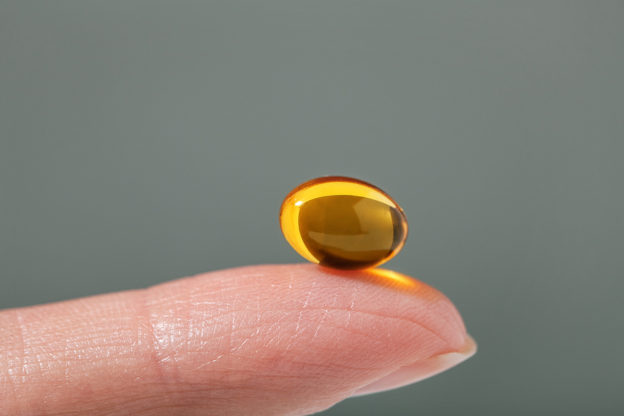By David Blyweiss, M.D., Advanced Natural Wellness
March 22, 2021
Do you have a cabinet full of nutritional supplements that you often forget to take?
And when you do remember them, are you confused whether you should take them before you eat, with your meals or on an empty stomach? Do you wonder if it’s better to take them when you wake up or before you go to bed?
If you’re trying to plan your supplement regimen based on the multitudes of conflicting advice on Google, it probably feels almost like rocket science. I’m glad to tell you it’s not even close.
When it comes to taking supplements on schedule, I have some of the simplest advice you’ll ever hear.
First of all, you should take your supplements with meals. Our bodies are made to digest food, not hard tablets or gel caps. So when you combine your supplements with meals, the digestive process that helps break down and absorb the nutrients from your food also breaks down and absorbs the vitamins, minerals and other nutrients found in your supplements.
Open your arteries, improve blood flow for a new health miracle...
Did you know your circulatory system has over 60,000 miles of arteries, veins and other blood vessels, if stretched end to end?
But as you age, your blood vessels undergo changes, which may cause them to stiffen, thicken and get clogged.
GOOD NEWS! Doctors have now identified a “Miracle Molecule” inside your arteries that helps OPEN your arteries and IMPROVE blood flow.
It’s what Dr. Valentin Fuster calls it, "One of the most important discoveries in the history of cardiovascular medicine."To you, that means...
- Healthy blood pressure
- Sharper mind and memory
- Skyrocketing energy and muscular strength
- Increased pleasure and passion in the bedroom
- Improved circulation to every cell and organ in your body
Go here to discover a new natural way to significantly boost the levels of this miracle molecule in YOUR body NOW!
Secondly, if you take a probiotic, plan to take it with your largest meal of the day, because there are some great digestive benefits that come with taking a good probiotic.
There are only a few, rare cases where these two rules of thumb might not apply.
- If you take amino acids or thyroid medication, they should be taken on an empty stomach.
- If you’re taking an antibiotic two or three times a day, you probably take the last one around dinnertime. In that case, wait three to four hours then take your probiotic at bedtime.
- If you’re on an iron supplement, make sure your meal contains some vitamin C. Orange juice, kiwi or strawberry all work. Or you can add a 250-500 mg vitamin C supplement to your regimen.
Out of Sight, Out of Mind
The next thing you should do? Quit hiding your supplements in the cabinet!
Out of sight, out of mind, right?
I have a Lazy Susan on my kitchen table with all of my supplements on it. When I sit down to eat, I just spin it around and take what I need. It makes it extremely easy for me to remember to take my supplements with my meals.
I highly recommend something similar. For example, you can place your supplements in a spice rack on the kitchen counter. That way you can’t help but see them while you’re preparing meals. Then you can select the ones you want and place them in a small bowl while your food is cooking. They’ll be ready to serve when your food is.
Are You Suffering From...
- Love handles and a pot belly
- Romance that isn't what it used to
- Forgetfulness and inattention
- Low (or no) strength and endurance
- A sex drive that's shifted into neutral...or worse
If so...you may have Mature Male Burnout. Click here to discover more about this unique condition and what you can do about it.
Ultimately, the more visible and accessible your vitamins and supplements are, the greater your chances of remembering to take them.
I also like to spread my supplements out over several meals.
Most people don’t know this, but you can often get the most benefit from a lower dose or divided doses across meals.
I’ve seen it any number of times… folks who take too much too soon and don’t feel well because of it. Or they take their supplements on an empty stomach and it makes them feel unwell.
And it’s a crazy thing!
Some doctors will recommend 50,000 or 100,000 international unit doses of an oral or injectable vitamin D. Yet when we get vitamin D from sunshine, we only make about a thousand units every few minutes until it maxes out at about 25,000 to 30,000 units.
The thing is, the body absorbs nutrients better at lower consistent doses. Unless you’re really sick 5,000 to 10,000 units of vitamin D will do the trick.
This same concept applies to many other vitamins and minerals. Keep this in mind as you review the supplements you are taking. You might find that spreading high dose vitamins and minerals across several meals provides better results.
A Final Note About Probiotics
I do want to say a few more things about probiotics.
When it comes to probiotics, the shelves of drug, grocery and health food stores are loaded with them. This can make it very confusing to know which one to choose.
Ideally, you should look for a probiotic that also includes a prebiotic. Not all of them do. But this combination is important, because prebiotics act as food for the probiotics and makes them work better.
Then, the metabolism of the prebiotic and probiotic produce what we call the postbiotic. This is a byproduct of the probiotic feeding on the prebiotic. Postbiotics are important not just for digestion, but also to help other prebiotics (think plant based foods)work better.
With the right colony forming units, around 50 billion of varied beneficial bacteria and yeast like Saccharomyces boulardii, it can help keep the probiotic in your intestine. Otherwise, they’re just passing through – they’ll stay a certain amount of time, then leave if you don’t you re-up them regularly.
And remember, they’re called supplements, intended to supplement your healthy diet, not replace it.
SOURCES:
Lane DJR, et al. The active role of vitamin C in mammalian iron metabolism: Much more than just enhanced iron absorption! Free Radic Biol Med. 75 (2014), pp. 69-83.
Markowiak P, et al. Effects of Probiotics, Prebiotics, and Synbiotics on Human Health. Nutrients. 2017 Sep; 9(9): 1021.







